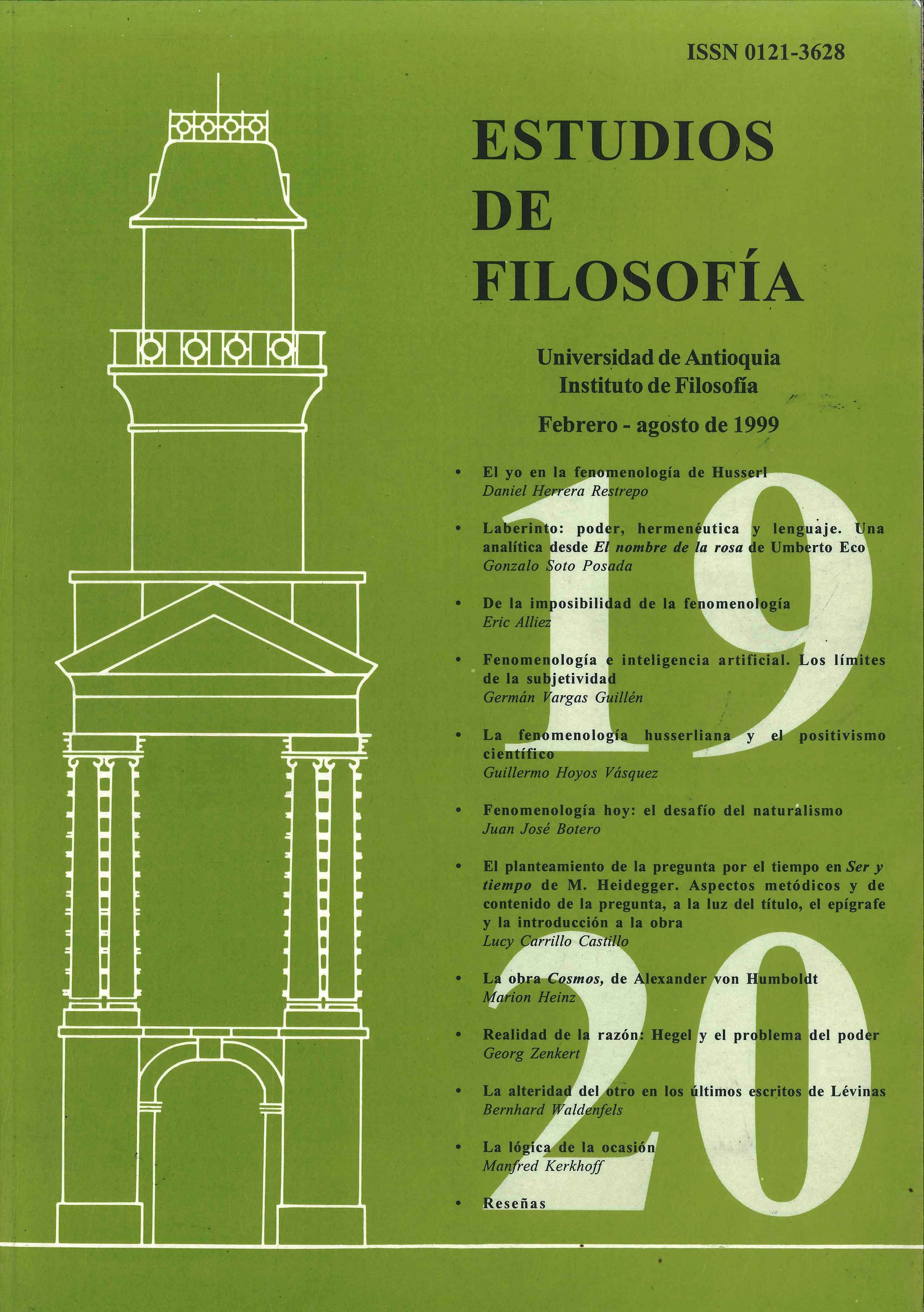Laberinto: poder, hermeneútica y lenguaje. Una analítica desde El nombre de la rosa de Umberto Eco
DOI:
https://doi.org/10.17533/udea.ef.335779Palabras clave:
laberinto, rizoma, semiosis, risaResumen
Con base en El nombre de la Rosa de Umberto Eco se intenta mostrar la relación poder, saber y lenguaje desde la figura del laberinto tipo rizoma, sin centro ni periferia, siempre estructurable, nunca estructurado. Para hacerlo se plantean dos paradigmas hermenéuticos para descifrar los textos como laberinto. El primero se simboliza en Jorge de Burgos: todo texto es monosemántico y unidimensional, lo que políticamente lleva a fanatismos jacobinos y dogmáticos. El segundo se materializa en Guillermo de Baskerville: los textos son polisemánticos y su semiosis es ilimitada, de modo que no hay textos definitivamente escritos, leídos e interpretados. Hay que habitar el mundo desde la duda como gozosa búsqueda ad infinitum, lo que se traduce políticamente en una lucha contra todo tipo de jacobismos. La conclusión es, desde este último paradigma, que la hermenéutica mora los textos desde Babel, no desde Pentecostés. Es el contraste entre la seriedad hermenéutica de Burgos y la sonrisa hermenéutica de Baskerville.
Descargas
Descargas
Publicado
Cómo citar
Número
Sección
Categorías
Licencia
Derechos de autor 1999 Gonzalo Soto Posada

Esta obra está bajo una licencia internacional Creative Commons Atribución-NoComercial-CompartirIgual 4.0.
Los autores que publican en Estudios de Filosofía acuerdan los siguientes términos:
1. El Autor retiene el copyright del "Artículo", por el cual se entiende todos los objetos digitales que pueden resultar de la subsiguiente publicación o distribución electrónica.
2. En conformidad con los términos de este acuerdo, el autor garantizará a Estudios de Filosofía como Editor el derecho de la primera publicación del artículo.
3. El Autor le concederá al Editor un derecho perpetuo y no-exclusivo, así como una licencia de la misma clase, de publicar, archivar y hacer accesible el Artículo parcial o totalmente en todos los medios conocidos o por conocerse, derecho y licencia que se conocen como Creative Commons License Deed. Atribución-No Comercial- Compartir igual CC BY-NC-SA o su equivalente que para efectos de eliminar toda duda, le permite a otros copiar, distribuir, y transmitir el Artículo bajo las siguientes condiciones: (a) Atribución: Se deben reconocer los créditos de la obra de la manera especificada por el Autor a Estudios de Filosofía, pero no de una manera que sugiera que tiene su apoyo o que apoyan el uso que hace de su obra. (b) No Comercial: No se puede utilizar el Artículo para fines comerciales.
4. El Autor puede realizar otros acuerdos contractuales no comerciales para la distribución no exclusiva de la versión publicada del Artículo (v. gr. ponerlo en un repositorio institucional o publicarlo en un libro) con la condición de que haga el debido reconocimiento de su publicación original en Estudios de Filosofía.
5. A los Autores se les permite y Estudios de Filosofía promueve publicar en línea (online) la versión pre-impresa del Artículo en repositorios institucionales o en sus páginas web, antes y durante la publicación, por cuanto que puede producir intercambios académicos productivos, así como una mayor citación del Artículo publicado (ver The Effect of Open Access). Dicha publicación durante el proceso de producción y en la publicación del Artículo se espera que se actualice al momento de salir la versión final, incluyendo una referencia a la URL de Estudios de Filosofía.















